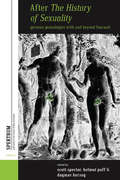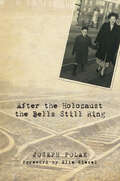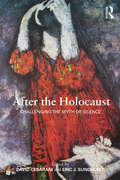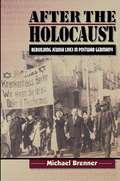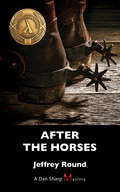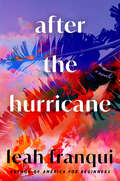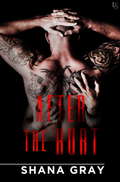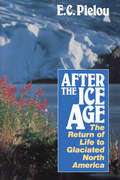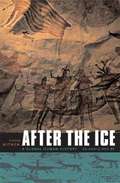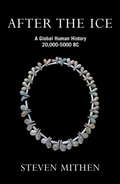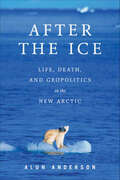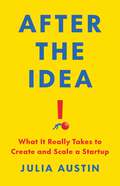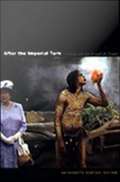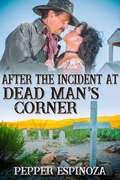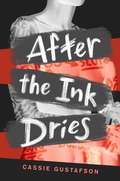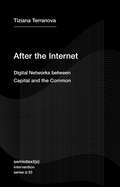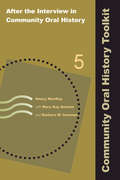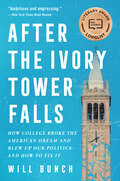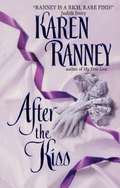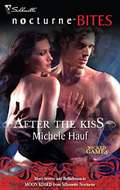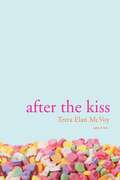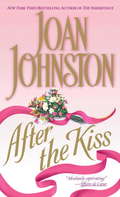- Table View
- List View
After the History Of Sexuality
by Dagmar Herzog Helmut Puff Scott SpectorMichel Foucault's seminal The History of Sexuality (1976-1984) has since its publication provided a context for the emergence of critical historical studies of sexuality. This collection reassesses the state of the historiography on sexuality--a field in which the German case has been traditionally central. In many diverse ways, the Foucauldian intervention has governed the formation of questions in the field as well as the assumptions about how some of these questions should be answered. It can be argued, however, that some of these revolutionary insights have ossified into dogmas or truisms within the field. Yet, as these contributions meticulously reveal, those very truisms, when revisited with a fresh eye, can lead to new, unexpected insights into the history of sexuality, necessitating a return to and reinterpretation of Foucault's richly complex work. This volume will be necessary reading for students of historical sexuality as well as for those readers in German history and German studies generally who have an interest in the history of sexuality.
After the Holocaust the Bells Still Ring
by Joseph PolakWinner of:2015 National Jewish Book Award; Biography, Autobiography, and MemoirThis memoir is a fascinating portrait of mother and child who miraculously survive two concentration camps, then, after the war, battle demons of the past, societal rejection, disbelief, and invalidation as they struggle to reenter the world of the living. It is the tale of how one newly takes on the world, having lived in the midst of corpses strewn about in the scores of thousands, and how one can possibly resume life in the aftermath of such experiences. It is the story of the child who decides, upon growing up, that the only career that makes sense for him in light of these years of horror is to become someone sensitive to the deepest flaws of humanity, a teacher of God's role in history amidst the traditions that attempt to understand it—and to become a rabbi. Readers will not emerge unscathed from this searing work, written by a distinguished, Boston-based rabbi and academic.
After the Holocaust: Challenging the Myth of Silence
by Eric J. Sundquist David CesaraniFor the last decade scholars have been questioning the idea that the Holocaust was not talked about in any way until well into the 1970s. After the Holocaust: Challenging the Myth of Silence is the first collection of authoritative, original scholarship to expose a serious misreading of the past on which, controversially, the claims for a ‘Holocaust industry’ rest. Taking an international approach this bold new book exposes the myth and opens the way for a sweeping reassessment of Jewish life in the postwar era, a life lived in the pervasive, shared awareness that Jews had narrowly survived a catastrophe that had engulfed humanity as a whole but claimed two-thirds of their number. The chapters include: an overview of the efforts by survivor historians and memoir writers to inform the world of the catastrophe that had befallen the Jews of Europe an evaluation of the work of survivor-historians and memoir writers new light on the Jewish historical commissions and the Jewish documentation centres studies of David Boder, a Russian born psychologist who recorded searing interviews with survivors, and the work of philosophers, social thinkers and theologians theatrical productions by survivors and the first films on the theme made in Hollywood how the Holocaust had an impact on the everyday life of Jews in the USA and a discussion of the different types, and meanings, of ‘silence’. A breakthrough volume in the debate about the ‘Myth of Silence’, this is a must for all students of Holocaust and genocide.
After the Holocaust: Rebuilding Jewish Lives in Postwar Germany
by Michael BrennerThis landmark book is the first comprehensive account of the lives of the Jews who remained in Germany immediately following the war. Gathering never-before-published eyewitness accounts from Holocaust survivors, Michael Brenner presents a remarkable history of this period. While much has been written on the Holocaust itself, until now little has been known about the fate of those survivors who remained in Germany. Jews emerging from concentration camps would learn that most of their families had been murdered and their communities destroyed. Furthermore, all Jews in the country would face the stigma of living, as a 1948 resolution of the World Jewish Congress termed it, on "bloodsoaked German soil." Brenner brings to life the psychological, spiritual, and material obstacles they surmounted as they rebuilt their lives in Germany. At the heart of his narrative is a series of fifteen interviews Brenner conducted with some of the most important witnesses who played an active role in the reconstruction--including presidents of Jewish communities, rabbis, and journalists. Based on the Yiddish and German press and unpublished archival material, the first part of this book provides a historical introduction to this fascinating topic. Here the author analyzes such diverse aspects as liberation from concentration camps, cultural and religious life among the Jewish Displaced Persons, antisemitism and philosemitism in post-war Germany, and the complex relationship between East European and German Jews. A second part consists of the fifteen interviews, conducted by Brenner, with witnesses representing the diverse background of the postwar Jewish community. While most of them were camp survivors, others returned from exile or came to Germany as soldiers of the Jewish Brigade or with international Jewish aid organizations. A third part, which covers the development of the Jewish community in Germany from the 1950s until today, concludes the book.
After the Horses: A Dan Sharp Mystery
by Jeffrey Round2016 Lambda Literary Award for Gay Mystery — Shortlisted Dan Sharp scours Toronto’s seamy underbelly after the murder of a notorious nightspot owner, and finds his own life on the line. When Yuri Malevski, owner of notorious country-and-western bar The Saddle and Bridle, is found dead in his Parkdale mansion, missing-persons investigator Dan Sharp is reluctant to interfere in what he sees as police business. At first, Malevski’s sleazy lifestyle and shady associates make the murder look like an open-and-shut case, but Dan reconsiders after being approached by a couple who say Malevski was killed by cops over protection money. When vulnerable people who had frequented the dead man’s bar begin to disappear, Dan feels compelled to jump in feet first. Following a lead, his investigation takes him into the heart of Toronto’s gay community, where he confronts its down-and-outs — transients, drug dealers, and con artists — and soon finds his own life threatened as his search brings him closer to a killer.
After the Human: Culture, Theory and Criticism in the 21st Century (After Series #6)
by Sherryl VintAfter the Human provides a comprehensive overview of how a range of philosophical, ethical, and political ideas under the framework of posthumanism have transformed humanities scholarship today. Bringing together a range of interdisciplinary scholars and perspectives, it puts into dialogue the major influences from philosophy, literary study, anthropology, and science studies that set the stage for a range of new questions to be asked about the relationship of the human to other life. The book's central argument is that posthumanism's challenge to and disruption of traditional humanist knowledge is so significant as to presage a sea-change from the humanities into the posthumanities. After the Human documents the emergence of posthumanist ideas in the fractures within traditional disciplines, examines the new objects of analysis that thus came into prominence, and theorizes new interdisciplinary methods of study that followed.
After the Hurricane: A Novel
by Leah FranquiNamed by Etaf Rum as one of the Best Beach Reads of All Time for "Read with Jenna!"Reminiscent of Gabriela Garcia’s Of Women and Salt, Leah Franqui brings us an engrossing, deeply personal novel with a mystery at its heart as a daughter returns to Puerto Rico to search for her troubled father, who has gone missing after Hurricane Maria. From the outside, Elena Vega’s life appears to be an easy one: the only child of two professional parents, private school, NYU. But her twenties are aimless and lacking in connection. Something has always been amiss in her life: her father, the brilliant but deeply troubled Santiago Vega. Born in rural Puerto Rico, Santiago arrived in New York as a small child. His harsh, mercurial father returned to the island, leaving Santiago to be raised by his mentally ill mother and his formidable grandmother. An outstanding student, he followed scholarships to Stanford, then Yale Law, marrying Elena’s mother along the way. Santiago is the shining star of his migrant family—the one who made it out and struck it rich. But he is a haunted man, plagued by trauma, bipolar disorder, and alcoholism. He’s lost contact with Elena over the years and returned to San Juan to wrestle his demons alone.Then Hurricane Maria strikes, and Santiago vanishes. Desperate to know what happened to the father she once adored, Elena returns to Puerto Rico, a place she loved as a child but hasn’t seen in years. There she must unravel the truth about who her father is, crisscrossing the storm-swept island and reaching deep into his family tree to find relatives she’s never met, each of whom seems to possess a clue about Santiago’s fate.A compelling mystery unfolds, as Elena is reunited with family, and with a place she loved and lost—the island of Puerto Rico, which is itself a character in this book. It’s a story of connection, migration, striving, love, and loss, illuminated by humor and affection, written by a novelist at the height of her gifts.
After the Hurt
by Shana GrayPepper Chapman refuses to throw in the towel. Six months ago, she made the biggest mistake of her life. Blinded by grief after her mom’s death, Pepper abandoned the man she loves. Now she wants a second chance at everything she gave up: strong hands driving her to ecstasy . . . a deep voice whispering naughty promises in her ear . . . the future they’d planned since they were teenagers. So Pepper comes home looking for forgiveness, ready for a new beginning—if he’s willing to give her a shot.
After the Ice Age: The Return of Life to Glaciated North America
by E. C. PielouThe fascinating story of how a harsh terrain that resembled modern Antarctica has been transformed gradually into the forests, grasslands, and wetlands we know today. "One of the best scientific books published in the last ten years. "-Ottowa Journal "A valuable new synthesis of facts and ideas about climate, geography, and life during the past 20,000 years. More important, the book conveys an intimate appreciation of the rich variety of nature through time. "-S. David Webb,Science
After the Ice Age: The Return of Life to Glaciated North America (None Ser.)
by E.C. PielouThe fascinating story of how a harsh terrain that resembled modern Antarctica has been transformed gradually into the forests, grasslands, and wetlands we know today.
After the Ice: A Global Human History 20,000-5000 BC
by Steven MithenArchaeology says present day humans have been on the planet for eighty thousand years. The first writing has been dated to 3,500 BC. This is what humanity may have been during from 20,000 to 5,000 BC, during the period of global warming which followed the last great ice age. The author uses archaeology to talk about humans at various times during this period of time and at various places on the planet. This book is about what life may have been like day to day over a fifteen thousand year period before we learned to write and live in cities.
After the Ice: A Global Human History, 20,000 - 5000 BC
by Prof Steven MithenA fantastic voyage through 15,000 years of history that laid the foundations for civilisation as we know it by award-winning science writer Steven Mithen.Twenty thousand years ago Earth was in the midst of an ice age. Then global warming arrived, leading to massive floods, the spread of forests and the retreat of the deserts. By 5,000 BC a radically different human world had appeared. In place of hunters and gatherers there were farmers; in place of transient campsites there were towns. The foundations of our modern world had been laid and nothing that came after - the Industrial Revolution, the atomic age, the internet - have ever matched the significance of those events. AFTER THE ICE tells the story of climate change's impact during this momentous period - one that also saw the colonisation of the Americas and mass extinctions of animals throughout the world. Drawing on the latest cutting-edge research in archaeology, cognitive science, palaeontology, geology and the evolutionary sciences, Steven Mithen creates an evocative, original and remarkably complete picture of minds, cultures, lives and landscapes through 15,000 years of history.
After the Ice: A Global Human History, 20,000 - 5000 BC
by Steven MithenA fantastic voyage through 15,000 years of history that laid the foundations for civilisation as we know it by award-winning science writer Steven Mithen.Twenty thousand years ago Earth was in the midst of an ice age. Then global warming arrived, leading to massive floods, the spread of forests and the retreat of the deserts. By 5,000 BC a radically different human world had appeared. In place of hunters and gatherers there were farmers; in place of transient campsites there were towns. The foundations of our modern world had been laid and nothing that came after - the Industrial Revolution, the atomic age, the internet - have ever matched the significance of those events. AFTER THE ICE tells the story of climate change's impact during this momentous period - one that also saw the colonisation of the Americas and mass extinctions of animals throughout the world. Drawing on the latest cutting-edge research in archaeology, cognitive science, palaeontology, geology and the evolutionary sciences, Steven Mithen creates an evocative, original and remarkably complete picture of minds, cultures, lives and landscapes through 15,000 years of history.
After the Ice: Life, Death, and Geopolitics in the New Arctic
by Alun AndersonNew from Smithsonian Books, After the Ice is an eye-opening look at the winners and losers in the high-stakes story of Arctic transformation, from nations to native peoples to animals and the very landscape itself. Author Alun Anderson explores the effects of global warming amid new geopolitical rivalries, combining science, business, politics, and adventure to provide a fascinating narrative portrait of this rapidly changing land of unparalleled global significance.
After the Idea: What It Really Takes to Create and Scale a Startup
by Julia AustinEntrepreneurship expert Julia Austin shares battle-tested strategies to help founders and startup joiners build their venture from the ground up in this &“masterclass in intentional entrepreneurship&” (Jerry Colonna, author of Reboot) So you want to start a company. Or you were crazy enough to join a startup. You had a great idea, you built a prototype, and maybe you even raised some money. Now what? Julia Austin is here to answer that big question. She has both experienced and observed that the differentiator between the startups that succeed and those that fail is operational excellence. A lot of entrepreneurs are great at the idea part but do not anticipate the details required to actually run and scale a new venture. Drawing on Austin&’s extensive experience at renowned startups like Akamai, VMware, and DigitalOcean and the hundreds of founders and startups she has educated, coached, and advised, After the Idea is full of time-tested strategies to help founders, investors, and employees navigate the operational challenges of startup ventures, including customer development, scalability, process optimization, team management, and more. This accessible set of techniques is for anyone determined to turn a great idea into a solid success.
After the Imperial Turn: Thinking with and Through the Nation
by Antoinette BurtonFrom a variety of historically grounded perspectives, After the Imperial Turn assesses the fate of the nation as a subject of disciplinary inquiry. In light of the turn toward scholarship focused on imperialism and postcolonialism, this provocative collection investigates whether the nation remains central, adequate, or even possible as an analytical category for studying history. These twenty essays, primarily by historians, exemplify cultural approaches to histories of nationalism and imperialism even as they critically examine the implications of such approaches. While most of the contributors discuss British imperialism and its repercussions, the volume also includes, as counterpoints, essays on the history and historiography of France, Germany, Spain, and the United States. Whether looking at the history of the passport or the teaching of history from a postnational perspective, this collection explores such vexed issues as how historians might resist the seduction of national narratives, what--if anything--might replace the nation's hegemony, and how even history-writing that interrogates the idea of the nation remains ideologically and methodologically indebted to national narratives. Placing nation-based studies in international and interdisciplinary contexts, After the Imperial Turn points toward ways of writing history and analyzing culture attentive both to the inadequacies and endurance of the nation as an organizing rubric. Contributors. Tony Ballantyne, Antoinette Burton, Ann Curthoys, Augusto Espiritu, Karen Fang, Ian Christopher Fletcher, Robert Gregg, Terri Hasseler, Clement Hawes, Douglas M. Haynes, Kristin Hoganson, Paula Krebs, Lara Kriegel, Radhika Viyas Mongia, Susan Pennybacker, John Plotz, Christopher Schmidt-Nowara, Heather Streets, Hsu-Ming Teo, Stuart Ward, Lora Wildenthal, Gary Wilder
After the Incident at Dead Man's Corner
by Pepper EspinozaLife goes on after the shootout at Dead Man's Corner, and Paul Whitaker is left behind to pick up the pieces. Given the title of mayor and the responsibility of burying the dead, Paul is left to nothing but drudgery when the woman he loves rides off with another man. Now that he's alone with the dead, a wedding is the farthest thing from his mind.Until the town's most popular whore surprises him with a marriage proposal.Martha is beautiful and determined. Paul has always liked her from afar, but is completely dumbfounded when she announces her intention to be his bride. Is love still possible in Dead Man's Corner? Or will Paul lose another woman?
After the Ink Dries
by Cassie GustafsonWhat does it mean when you thought you knew someone? What does it mean when that person is your new boyfriend? Courtney Summers meets Deb Caletti in this page-turning suspense story of what it is to face hard truths about yourself and others, and how to find strength when you need it most.Sixteen-year-old Erica Walker is a webcomic artist who wants to fit in at her affluent new high school. Seventeen-year-old Thomas VanBrackel is an aspiring songwriter and reluctant lacrosse goalie who wants out from under his father&’s thumb. After their electric first kiss at Saturday&’s lacrosse match, Erica and Thomas are both elated to see where their new relationship could take them. The next morning, however, following a drunken house party, Erica wakes up half-clothed, and discovers words and names drawn in Sharpie in intimate places on her body—names belonging to Thomas&’s lacrosse friends, including the boyfriend of Erica&’s best friend. Devastated, Erica convinces herself Thomas wasn&’t involved in this horrific so-called &“prank&”…until she discovers Thomas&’s name on her skin, too. Told in alternating viewpoints, Erica seeks to uncover what happened while battling to keep evidence of her humiliation from leaking out, as Thomas grapples with his actions and who he thought he was. Woven throughout, illustrated graphic novel interstitials depict Erica&’s alter ego superhero, Erica Strange, whose courage just might help Erica come through to the other side.
After the Internet: Digital Networks between Capital and the Common (Semiotext(e) / Intervention Series #33)
by Tiziana TerranovaOn the internet's transformation from communication tool to computational infrastructure.The internet is no more. If it still exists, it does so only as a residual technology, still effective in the present but less intelligible as such. After nearly two decades and a couple of financial crises, it has become the almost imperceptible background of today&’s Corporate Platform Complex (CPC)—a pervasive planetary technological infrastructure that meshes communication with computation.In the essays collected in this book, written mostly between the mid-2000s and the late 2010s, Tiziana Terranova bears witness to this monstrous transformation. Mobilizing theories of cognitive capitalism, neo-monadology, and sympathetic cooperation, considering ideas such as the attention economy and its psychopathologies, and evoking the relation between algorithmic automation and the Common, she provides real-time takes on the mutations that have changed the technological, cultural, and economic ethos of the Internet. Mostly conceived, elaborated, and discussed in collective activist spaces, After the Internet is neither apocalyptic lamentation nor melancholic &“rise and fall&” story of betrayed great expectations. On the contrary, it looks within the folds of the recent past to unfold the potential futurities that the post-digital computational present still entails.
After the Interview in Community Oral History (Community Oral History Toolkit #5)
by Nancy MacKay Barbara W Sommer Mary Kay QuinlanCommunity projects often falter after the interviews are completed. This final book of the five-volume Community Oral History Toolkit explains the importance of processing and archiving oral histories and takes the reader through all the steps required for good archiving and for concluding the oral history project so that it is preserved and accessible for future generations. The authors give special attention to record-keeping systems and repositories, and provide several examples from actual projects to ground the information in practical terms. Charts, checklists, and sample forms also help the reader apply concepts to practice. Volume 5 finishes with examples of creative ways community projects have used oral histories, such as performances, exhibitions, celebrations, websites, and more, in order to promote history and engage the community.
After the Ivory Tower Falls: How College Broke the American Dream and Blew Up Our Politics—and How to Fix It
by Will BunchFrom Pulitzer Prize–winning journalist Will Bunch, the epic untold story of college—the great political and cultural fault line of American life"This book is simply terrific." —Heather Cox Richardson, publisher of the "Letters from an American" Substack"A must-read." —Nancy MacLean, author of Democracy in ChainsToday there are two Americas, separate and unequal, one educated and one not. And these two tribes—the resentful “non-college” crowd and their diploma-bearing yet increasingly disillusioned adversaries—seem on the brink of a civil war. The strongest determinant of whether a voter was likely to support Donald Trump in 2016 was whether or not they attended college, and the degree of loathing they reported feeling toward the so-called “knowledge economy of clustered, educated elites. Somewhere in the winding last half-century of the United States, the quest for a college diploma devolved from being proof of America’s commitment to learning, science, and social mobility into a kind of Hunger Games contest to the death. That quest has infuriated both the millions who got shut out and millions who got into deep debt to stay afloat.In After the Ivory Tower Falls, award-winning journalist Will Bunch embarks on a deeply reported journey to the heart of the American Dream. That journey begins in Gambier, Ohio, home to affluent, liberal Kenyon College, a tiny speck of Democratic blue amidst the vast red swath of white, post-industrial, rural midwestern America. To understand “the college question,” there is no better entry point than Gambier, where a world-class institution caters to elite students amidst a sea of economic despair.From there, Bunch traces the history of college in the U.S., beginning with the first technical schools, through the landmark GI Bill, and the culture wars of the 60’s and 70’s, which found their start on college campuses. We see how resentment of college-educated elites morphed into a rejection of knowledge itself—and how the explosion in student loan debt fueled major social movements like Occupy Wall Street. Bunch then takes a question we need to ask all over again—what, and who, is college even for?—and pushes it into the 21st century by proposing a new model that works for all Americans.The sum total is a stunning work of journalism, one that lays bare the root of our political, cultural, and economic division—and charts a path forward for America.
After the Kiss
by Karen RanneyNo longer the proper English wife she always was, Margaret kissed a handsome stranger.Now the dashing earl will not rest until the beautiful widow he held in his arms so briefly is his forever.
After the Kiss
by Michele HaufBelladonna Reynolds has just married a werewolf. Severo has given her nearly everything she could want--love, amazing sex, and the honor of choosing her as his mate for life. Yet there is one thing she craves that Severo will not give her: his blood. To a vampire, a couple's great bond is formed with the bite. But Severo will be shunned by his own kind once marked by a vampire. Even as they enjoy intense passion in their marriage bed, Bella and Severo have to wonder: Can a marriage between a werewolf and a vampire work?
After the Kiss
by Terra Elan McvoyBecca and her boyfriend, Alec, attend different schools, but they make things work--mainly by being inseparable after school and on weekends. So when Becca has to take a job at a coffee shop, she is more than a little bit insecure about what this will mean for their relationship. Meanwhile, new-girl Camille meets a haiku-spouting boy who makes her genuinely laugh, even though she can see an all-too-familiar loneliness in him. The kiss they steal on the back deck at a party takes her by surprise and leaves her wanting more.What Camille doesn't know is that this boy is Alec, Becca's boyfriend. And Alec doesn't know that Becca's best friend has captured The Kiss on her camera phone. Becca and Camille have never met, but their lives will unravel and intertwine in surprising ways throughout this beautifully crafted verse novel about love, heartbreak, and trust.
After the Kiss (Captive Heart #2)
by Joan JohnstonThe Innocent: Too tall and entirely too outspoken, Miss Eliza Sheringham grew up thumbing her nose at polite English society. So when Captain Lord Marcus Wharton, called Beau for his stunning good looks, set his rakish sights on her, Eliza thought nothing of rejecting his advances. Until a stolen kiss swept her into the arms of a man too dangerous too love.... The Beau: Called to battle, Marcus left behind the woman who had captured his heart--and the scandal ignited by their kiss. His brother's disappearance made him Duke of Blackthorne, guardian of twin nieces who were rumored to be his own daughters. Badly scared in battle, the Beau had become the Beast of Blackthorne, a wounded animal destined to spend his life hiding in a shadowy wing of Blackthorne Abbey. The Beast: When Eliza Sheringham showed up on his doorstep proposing herself as governess for the incorrigible twins, the Beast demanded marriage as the price of the job. He knew she could never love him. Surely his looks would drive her away--now that he hungered for her more than life itself. ...
